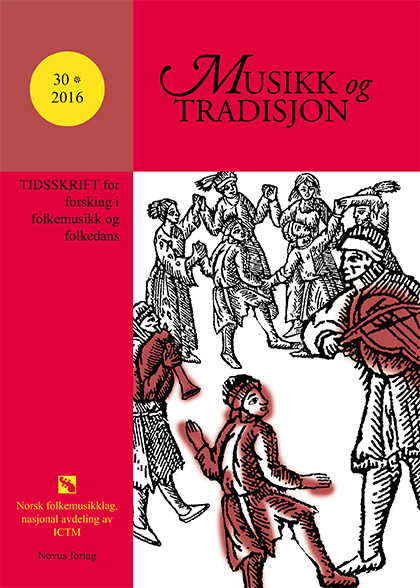Abstract
The article deals with town musicians in the town of Skien and subcontractor musicians or holders in the county of Bratsberg (Telemark) in the 18th century. Town musicians or musicus instrumentalis received a royal commission, granting them the exclusive right to perform music within a specified area. In Norway, the institution of town musician was established at the beginning of the 17th century. Initially the music monopoly was restricted to the towns. Gradually, the districts with such privileges expanded to encompass geographically extensive areas. In 1724, the whole county of Bratsberg became the privileged district of the town musician in Skien. In the countryside, rivalries between privileged and non-privileged musicians arose, especially during wedding celebrations, as the farming population preferred their own fiddlers. In order to counter allegedly illegal playing, two strategies were available. Exclusion by legal prosecution, or co-option. In a strategy of alliance, the privileged musician turned some of his rivals into holders, granting them authorisation for a smaller district against an annual rent. Several holders, while unknown in the folk music tradition, are well documented, emphasising the social background and skills of these musicians, and their important role in the institution of town musician.
This work is licensed under a Creative Commons Attribution-NonCommercial-ShareAlike 4.0 International License.
Copyright (c) 2017 Musikk og Tradisjon

